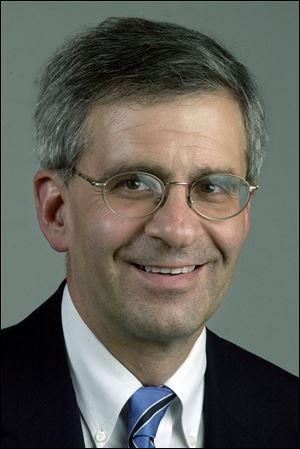
COMMENTARY
The would-be write-in president
3/9/2014
Shribman
INTERVALE, N.H. — This story is seldom told, even less often remembered, almost certain never to be repeated. It is the story about a brand of politics long forgotten, about a political world long vanished, about a political tactic long abandoned.
And yet this story illuminates so much about our current politics that it deserves to be retrieved from history and retold at its 50th anniversary.
On the surface it is a story about how an American ambassador in a strife-torn faraway land rocked the political world by pulling off a New Hampshire primary victory against the two most famous political figures of his party.
This is the story about how Henry Cabot Lodge, Jr. — defeated by John Kennedy in one of the signature Senate races of the century in 1952, defeated again by Mr. Kennedy and Lyndon Johnson when he was Richard Nixon’s running mate in 1960, and then ensconced by President Kennedy, out of political sight, in the Saigon embassy complex — won New Hampshire a half-century ago Monday without even stepping into the state.
American politics has a long tradition of front-porch campaigning, particularly in the Republican Party — perfected by Ohioans James Garfield, Benjamin Harrison, and William McKinley, all of whom were elected to the White House without stepping far beyond their front porches. But the 1964 New Hampshire primary was won by a Republican who slipped in through the back door.
That back door was unguarded because of the gaudy spectacle played out for months in the rocky, mountainous front yard of New Hampshire politics, where the classic moderate of his time — Nelson Rockefeller — clashed with the classic conservative of his time — Barry Goldwater.
For weeks, these two giants crossed the state, then populated by only slightly more than half a million people, not yet transformed by the Yankee Magazine ethos into an enclave of the quaint and the cute, and still dominated by textile mills and the shoe industry.
It didn’t help either candidate’s case that each possessed a manner — as opposite in style as it was in ideology — that was slightly out of tune in a state whose politics then moved to the rhythm of a Broadway show, perhaps Brigadoon, which sometimes is employed as a metaphor for the quadrennial pageant and performance art of the primary here.
This environment — dominated by two established political figures working from their established playbooks — was peculiarly suited to an insurgency, engineered by four amateurs in search of “something fun and exciting to do.”
They put down $400 to rent a Concord storefront, hired a sign painter for $162, sent out 96,000 letters, and spent $750 on a crude “documentary” on the life of Mr. Lodge, still safely tucked away 10,000 miles from Manchester.
“This write-in thing came pretty much out of nowhere,” said state Rep. David Hess of Hookset, the deputy Republican leader of the state House. He, as a Dartmouth University senior, had been recruited by the college dean to organize the northern third of Grafton County for Mr. Rockefeller. “It swept everyone away. Rocky and Barry were left behind — and it was a shocker, even to those of us on the ground. There’s never been anything like it.”
The primary ballot that year was a foot and a half in length, with 125 delegates listed. Voters who had been urged to make an independent choice turned out in droves for Mr. Lodge. He received 36 percent of the vote, topping Mr. Goldwater (22 percent) and Mr. Rockefeller (21 percent).
Mr. Goldwater went on to win the nomination, Mr. Rockefeller to serve as vice president. And Mr. Lodge? He served as head of the American delegation at the Vietnam peace talks and died 29 years ago, his adventure in national politics long unremembered.
David Shribman is executive editor of the Pittsburgh Post-Gazette.
Contact him at: dshribman@post-gazette.com.